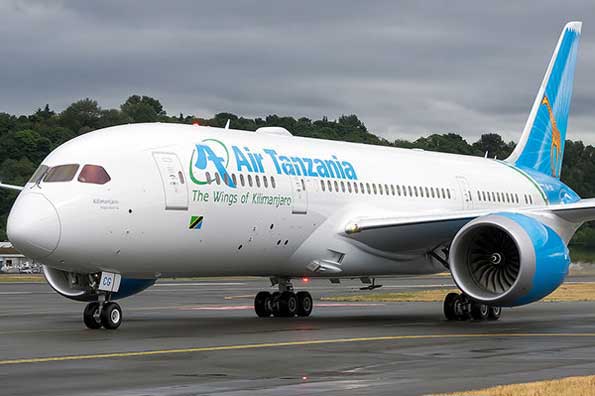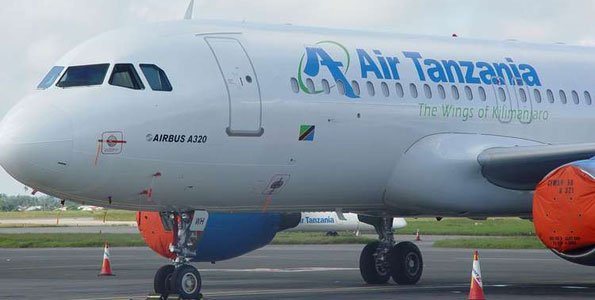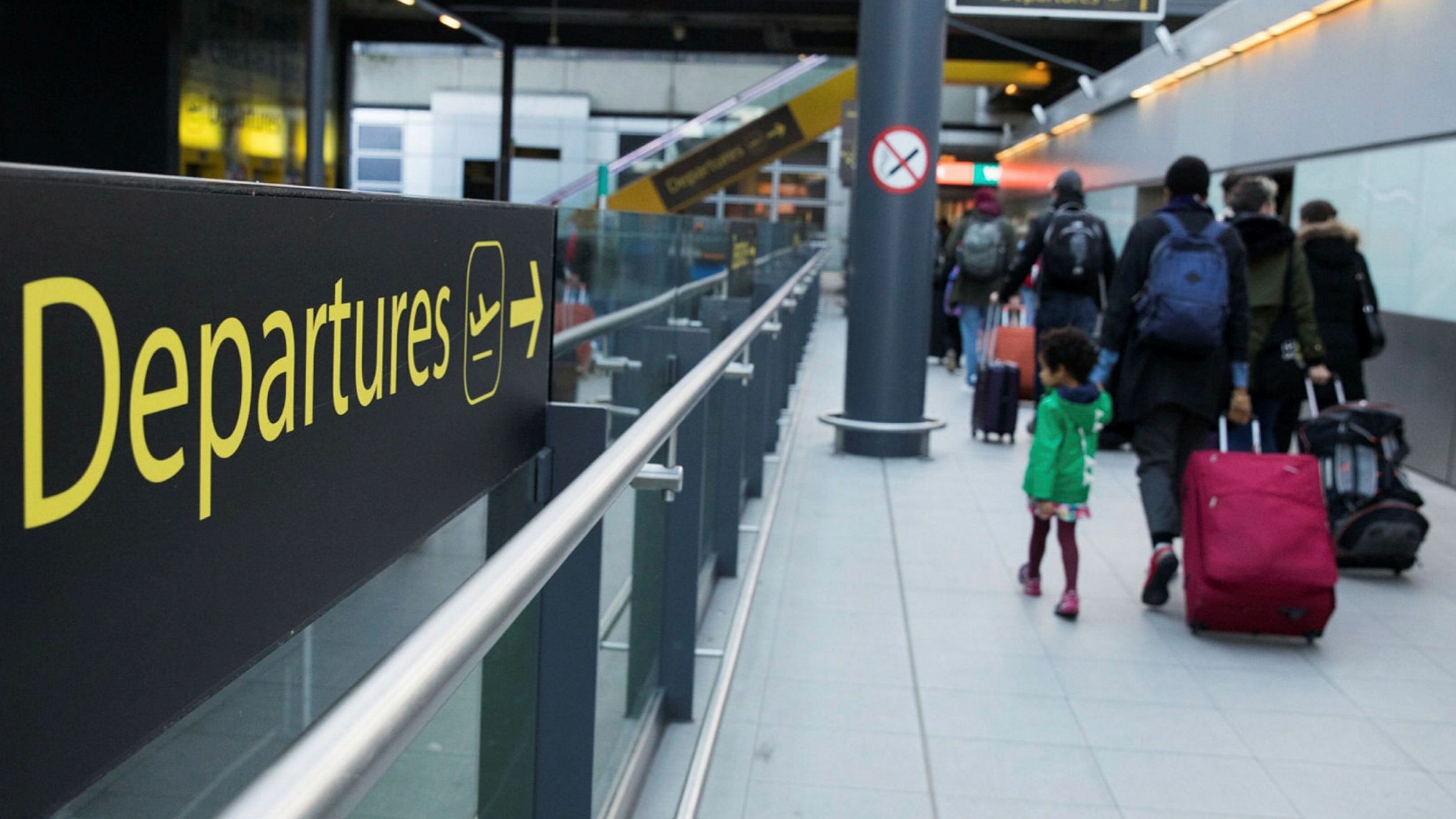Hundreds of passengers from South Africa were being held at Schiphol Airport in Amsterdam on Friday after the Netherlands imposed new travel restrictions amid concerns over an aggressive mutation of the novel coronavirus.
The European Union and other major destinations, including the United States and Canada, have moved to block flights from African countries following the discovery of the Omicron variant, echoing previous emergency responses that triggered a global freeze on travel.
Two flights from South Africa, one from Cape Town and one from Johannesburg, landed Friday late morning local time at Schiphol, an airport spokesman said. The passengers had to remain on board the flight while a separate, secure location in the airport was being located and are waiting to be tested, he said.
The spokesman estimated the two flights were carrying between 400 and 600 passengers between them. Given the large number of travelers involved, “it will take time to test everyone,” he said.
The new strain has so far been detected in South Africa, Botswana, and in two travelers quarantining in Hong Kong. A case has also been reported in Belgium.
European Union states have agreed to introduce temporary restrictions on all travel into the EU from southern Africa over the new coronavirus variant, the bloc said Friday. The countries concerned are Botswana, Eswatini, Lesotho, Mozambique, Namibia, South Africa, Zimbabwe, EU Commission spokesman Eric Mamer said.
Meanwhile, US President Joe Biden will restrict travel from South Africa, Botswana, Zimbabwe, Namibia, Lesotho, Eswatini, Mozambique and Malawi starting Monday, administration officials told CNN.
Biden told the press he had “decided we’re going to be cautious” about the variant. “We don’t know a lot about the variant except that it is a big concern and seems to spread rapidly,” he said.
Canada will be “banning the entry of foreign nationals… that have traveled through southern Africa in the last 14 days,” due to the Omicron variant, Health Minister Jean-Yves Duclos told a press conference on Friday.
Anyone who has traveled through southern Africa in the last 14 days should get a Covid-19 test and quarantine until they get a negative test result, said Duclos. The countries include South Africa, Mozambique, Botswana, Namibia, Zimbabwe, Lesotho and Eswatini, he said.
“Canadians and permanent residents and those with a right of entry into Canada will be tested on arrival, [and] they will quarantine until they get the result of a negative test,” according to Duclos.
The United Kingdom, Japan, Dubai, Saudi Arabia, Bahrain and Jordan are also among those imposing restrictions on flights and travelers from southern African nations in light of the new variant.
The World Health Organization announced Friday it had designated the newly identified variant, B.1.1.529, as a variant of concern, named Omicron.
While only dozens of cases have been identified so far, news of the variant, which has around double the amount of mutations as the Delta variant, is already sparking fears around the world.
On Friday, the International Air Transport Association (IATA) warned against travel bans, stressing such restrictions are “not a long-term solution” when it comes to managing coronavirus variants.
“Governments are responding to the risks of the new coronavirus variant in emergency mode causing fear among the traveling public. As quickly as possible we must use the experience of the last two years to move to a coordinated data-driven approach that finds safe alternatives to border closures and quarantine,” said IATA Director General Willie Walsh in a statement.
Tourism fears
The cascade of closures began late Thursday as the UK announced it would be temporarily suspending flights from South Africa, Namibia, Zimbabwe, Botswana, Lesotho and Eswatini, with Health Secretary Sajid Javid describing the variant as the “worst ever” strain of the virus.
The move prompted the South African government to issue a statement describing the UK’s decision as “rushed,” and expressed concern about the damage it would cause to “both the tourism industries and businesses of both countries.”
In the hours since, Japan has tightened border controls for travelers from the same six countries, bringing in a 10-day quarantine beginning 12 a.m. November 27.
Meanwhile, Germany planned to declare South Africa a “virus variant area” from Friday night, which will mean airlines may only enter from the country to repatriate German citizens.
Fellow EU nations Austria, France, Italy, the Netherlands and Malta have all announced imminent entry bans to all travelers who’ve entered South Africa, Lesotho, Botswana, Zimbabwe, Mozambique, Namibia and Eswatini in the past two weeks.
KLM said passengers will only be allowed on flights from South Africa to the Netherlands if they comply with the entry restrictions imposed by the Dutch government.
The entry ban does not apply to people with Dutch passports, EU citizens, Schengen Area residents, medical emergency staff, airline staff and people traveling under exceptional circumstances, such as family emergencies.
French Health Minister Olivier Véran said the “rapid” circulation of the variant in South Africa “means that it’s probably contagious or very contagious,” justifying France’s precautionary stance.
After Belgium reported one person recently arrived from Egypt had tested positive for B.1.1.529, France said it was “reinforcing” control at its border with Belgium.
Singapore has opted to ban all non-residents from Botswana, Eswatini, Lesotho, Mozambique, Namibia, South Africa and Zimbabwe from entering, while nationals and permanent residents returning from any of these countries will be required to serve a 10-day stay home notice (SHN). Malaysia and the Philippines have taken similar steps.
Dubai will restrict travelers originating from or transiting from the same seven African countries starting Monday until further notice, Emirates airline said, citing Dubai’s Covid-19 Command and Control Center.
Outbound passenger flights from Dubai to the countries listed are permitted, however, the Emirates statement said.
Saudi Arabia on Friday announced a temporary suspension of flights to and from South Africa, Namibia, Botswana, Zimbabwe, Mozambique, Lesotho and Eswatini, and urged both citizens and residents to avoid travel to the region until further notice.
Meanwhile, Jordan has announced any Jordanians arriving from several countries including South Africa will have to go into government quarantine for 14 days, according to a report Friday by Jordanian public broadcaster Al Mamlaka TV.
Non-Jordanians traveling from South Africa, Lesotho, Zimbabwe, Mozambique, Namibia, Eswatini and Botswana will only be allowed entry if they spend 14 days outside those countries in a third country, Al Mamlaka TV said, citing the country’s Interior Ministry. The new measures will go into effect Sunday.
Turkey has issued a travel ban from five African countries — Botswana, South Africa, Mozambique, Namibia and Zimbabwe — as of Friday night, Turkish Health Minister Fahrettin Koca said on Twitter.
The developments have led to speculation that strict curbs on travel brought in at the start of the pandemic could be on their way back.
The trade group representing major US airlines said it has “many unanswered questions” about the Biden administration’s travel restrictions.
“We remain in communication with the US government as specifics remain unknown at this time and there are many unanswered questions,” Airlines for America spokesman Carter Yang said. “Amid this rapidly evolving situation, it is critical that US government decisions regarding international travel restrictions and requirements be rooted in science.”
Delta Air Lines said it will not stop service to and from South Africa. United Airlines said it will not scale back its service to Johannesburg and will restart its route to Cape Town next week as planned.
Source: CNN Travel










